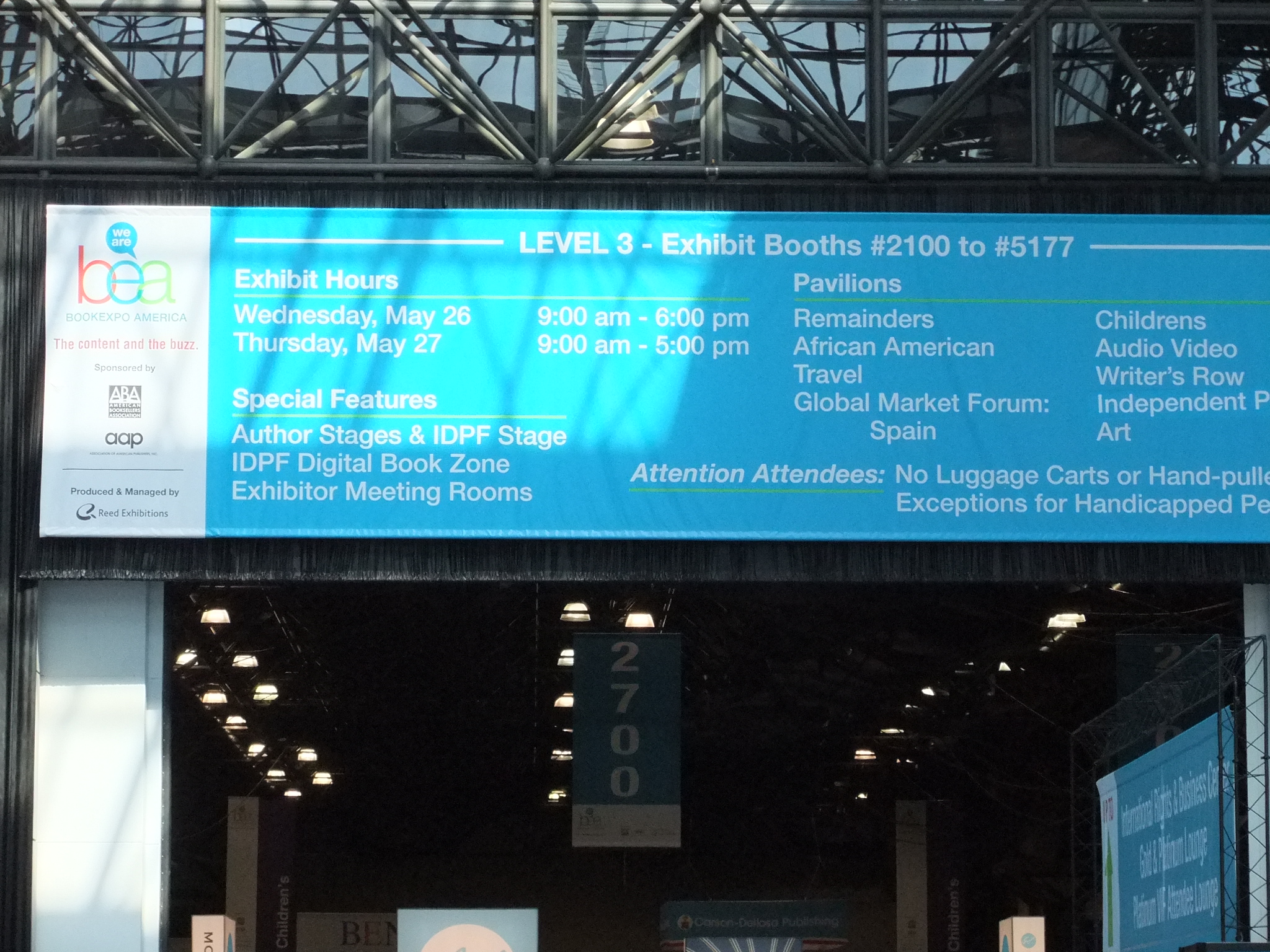 Dominique Raccah, Sourcebooks; Brian Defiore, Defiore & Co, literary agency; Madeline McIntosh, Random House; Brian Redmain, Harper Collins
Dominique Raccah, Sourcebooks; Brian Defiore, Defiore & Co, literary agency; Madeline McIntosh, Random House; Brian Redmain, Harper Collins
Raccah: living deep indigital jungle. We are now at the transformation of the book. More content published than ever before. This has led to a devaluation of content and a plethora of voices. Fragmentation of media makes it very hard to get authors heard. To get an author heard now takes an enormous amount of time and work. Of 26 bubbles on a chart of what publishers do, only two of them relate to printing and distribution. Publishers have done terrible job of articulating what they do in the digital model. They do pdf conversion, epub conversion, prc conversion, rtf conversion for a total of 30 additional new step before the publisher does anything else. Then metadata: accounts not ready for onix, accounts require more information, ISMNs must be assigned, ensure territorial rights are updated, unage requirements of form, most accounts require info specific to them. There are no good reporting mechanism for ebooks, added over 70 steps in just what replaces manufacturing end, all the steps are manual and getting new devices every day. Publishers have experienced an explosion in the amount of work they have to do. It seems likely that publishers are facing higher costs for less revenue. Three new kinds of digital opportunity: ebooks, apps and web based. For an author they represent a huge opportunity for an author, but it also represents a complete retooling of what a publishing company does. Need to become much more involved in consumer marketing and it will become part of every job function.
Defiore: industry exits to bring authors to readers and sometimes the industry forgets that and concentrating on sustaing the industry rather than the authors. Ultimately ebooks will be an incredible boon. Opens up many new opportunities for authors. The experimentation has not even really begun. Need to rethink how authors share proceeds for sales. Most agents feel strongly that change to agency model but retention of contract terms that are related to authors in the old model will be harmful to authors. Amount publishers paying to authors is the lowest ever paid in the history of the business. Publishers say used to pay 25..5 and now still pay that. In a digital world the split between hardcover and paper readers will no longer exists and so the traditional 25.5 is not valid any more since it included a very low 7.5% royalty on paperbacks. Publishers get enormous savings for ebooks and authors should participate. Publisher clears same amount for an ebook sale as a pbook sale but authro makes 40% less. For publishers to insist on a compensation scheme for the life of the copyright in a situation where the model will be completely changed is unfair. Marketing is becoming part of the author’s function and sometimes the author brings the marketing to the publisher.
Murray: as authors we are all on our own and this only exacerbates it. But this may be good, the process breaks stuff down into little pieces that can be turned into franchises and exploited. If look at future as an author are not too concerned about the revenue split because the market hasn’t formed yet. Should have the ability to renegotiate. Still wants a great editor and a good marketing from the publisher.
McIntosh: it’s not are ebooks are good or bad, it’s that their role as a publisher has not changed. Once you get past the big step that digital is part of life, then a lot has actually not changed. Two most important things activities still remain editorial and marketing. Editorial experience doesn’t change much, but marketing experience does because of the channel shifts that are occurring. Hopefully have moved past whether “ebooks are good for authors”. Publishers will be changing how spending marketing dollars.
Redmain: they are here to stay whether or not they are good for authors. On balance, are good because they are good for consumers and this means that they will grow the market. Benefits: immediacy, buy any time anywhere; reaching new audiences, ebooks don’t cannibalize ebooks because customers are not necessarily those who buy physical books; Google coming into market, mobile players coming into market and they have enormous reach and cover territories that publishers could never reach. Can sell more ebooks because of the ease of purchase and ease of consumption. Amazon did research and before Kindle bought 10/books year and after Kindle bought 31 books/year. Is some cannibalization, but is probably different for different products, i.e., iPad reader is probably different than a Kindle reader. Ebooks give authors more creative freedom. Current maximum length of books is based on ease of carrying around, for example. Be careful of “enhanced” books in fiction publishing. Hard to see how it adds value there. Another benefit is that they are never out of stock. At Harper Collins they will be tracking every author’s books for piracy. Consumer marketing will become more important and need new skill sets to do this well.

































Initially, I didn’t see multiple formats as a significant problem. Now, though, supporting 7 different formats adds many hours to the final output. The point about reporting structures is also true. Each distributor has their own system for reports. When I do my quarterly royalty statements, I have to parse through each distributor’s system (many of which can’t even be sorted, and which are not always arranged by author) to find sales for each author. I love eBooks but I’ll love it even more if we ever get to a standard format that really is standard.
Rob Preece
Publisher
Glad to see someone realize that the whole ‘cannibalizing sales’ thing isn’t really that much of an issue. And it’s true, a Kindle reader and an iPhone reader will probably buy different books. I read shorter stuff when I read glowy screens and reserve my long-form reading for the Kindle.
…I, on the other hand, am reading text. I really don’t care whether it’s served up on an e-ink screen or an LCD screen or a cathode-ray tube or a piece of tree or tatooed on the back of a naked woman…er, uh, anyway I don’t CARE how the text gets to me. I read the text, The End.